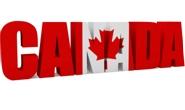Canada

March 13, 2018
Canada Resists Linking Tariffs and NAFTA Talks
Written by Sandy Williams
President Trump wants the NAFTA talks concluded before upcoming elections in Mexico and the U.S., as he told Canadian Prime Minister Justin Trudeau in a phone call on Monday. Trudeau has been meeting with Canadian steel and aluminum workers this week with stops planned at Stelco and ArcelorMittal Dofasco on Tuesday. The call came on a day when Trudeau was promoting on American television an integrated Canada-U.S. economy.
![]() Trudeau told CNN that Canada is also anxious to move forward on NAFTA, “so we’re glad to do it.”
Trudeau told CNN that Canada is also anxious to move forward on NAFTA, “so we’re glad to do it.”
Trudeau, however, said talk of tariffs by the U.S. will make it harder to get a deal and Canada will not be bullied. Trump had stated previously that the tariff exemption for Canada and Mexico was contingent on a “fair” and quick resolution to the NAFTA negotiations.
“I told the president that imposing tariffs on steel and aluminum does not help with regard to NAFTA,” Trudeau said Monday. “It has a negative impact on the NAFTA talks.”
Trudeau said he does not look at the tariff exemption for Canada as any favor from the U.S. and refused to link the tariffs and NAFTA negotiations together.
“The exemptions aren’t a magical favour that was being done [for Canada],” Trudeau said. It was because tariffs on Canada will hurt the U.S. as much as it does Canada.
Trudeau dismissed the idea of Canadian steel and aluminum harming U.S. national security. The prime minister told CNN, “Canadian aluminum is in your fighter jets. Canadian steel is in your tanks. There is no better security partner in the world… So that whole issue of national security is off the table.”
Canadian Foreign Affairs Minister Chrystia Freeland also reiterated that Canada will not be intimidated by the temporary reprieve under Section 232.
“These are two separate tracks and in the NAFTA negotiations Canada will not be subject to any type of pressure,” she said. “This episode has not changed our NAFTA negotiation position.”
Sean Donnelly, Chief Executive of ArcelorMittal Dofasco, said the company is not seeing aid from the Canadian government regarding Section 232 action. Donnelly, however, stressed that the government must put restrictions in place to ensure unfairly traded steel imports are not diverted to Canada.
“I think it’s just boots on the ground at the CBSA (Canada Border Services Agency) and in Global Affairs to make sure whatever remedies are put in place…and that’s up to the government to come up with the remedies or tools…that they have the resources to enforce,” Donnelly told Reuters.
Former U.S. ambassador to Canada, Bruce Heyman, told CNBC, “The U.S. is making a big mistake in how we are treating Canada on NAFTA.”
It is an issue that should never have been debated since the U.S. has a $12 billion trading surplus in goods and services with Canada, said Heyman. He noted the U.S. is pushing Canada to explore other trading partnerships and pointed to Canada’s recent signing of the new Trans-Pacific Partnership, visits to China and India, and the initiation of a free trade agreement with the European Union.
“It’s a mistake for the U.S. long term to see Canada build those kinds of relationships, especially China and the most recent visits,” Heyman said. “Canada has to do it to diversify, and it makes economic sense.”






